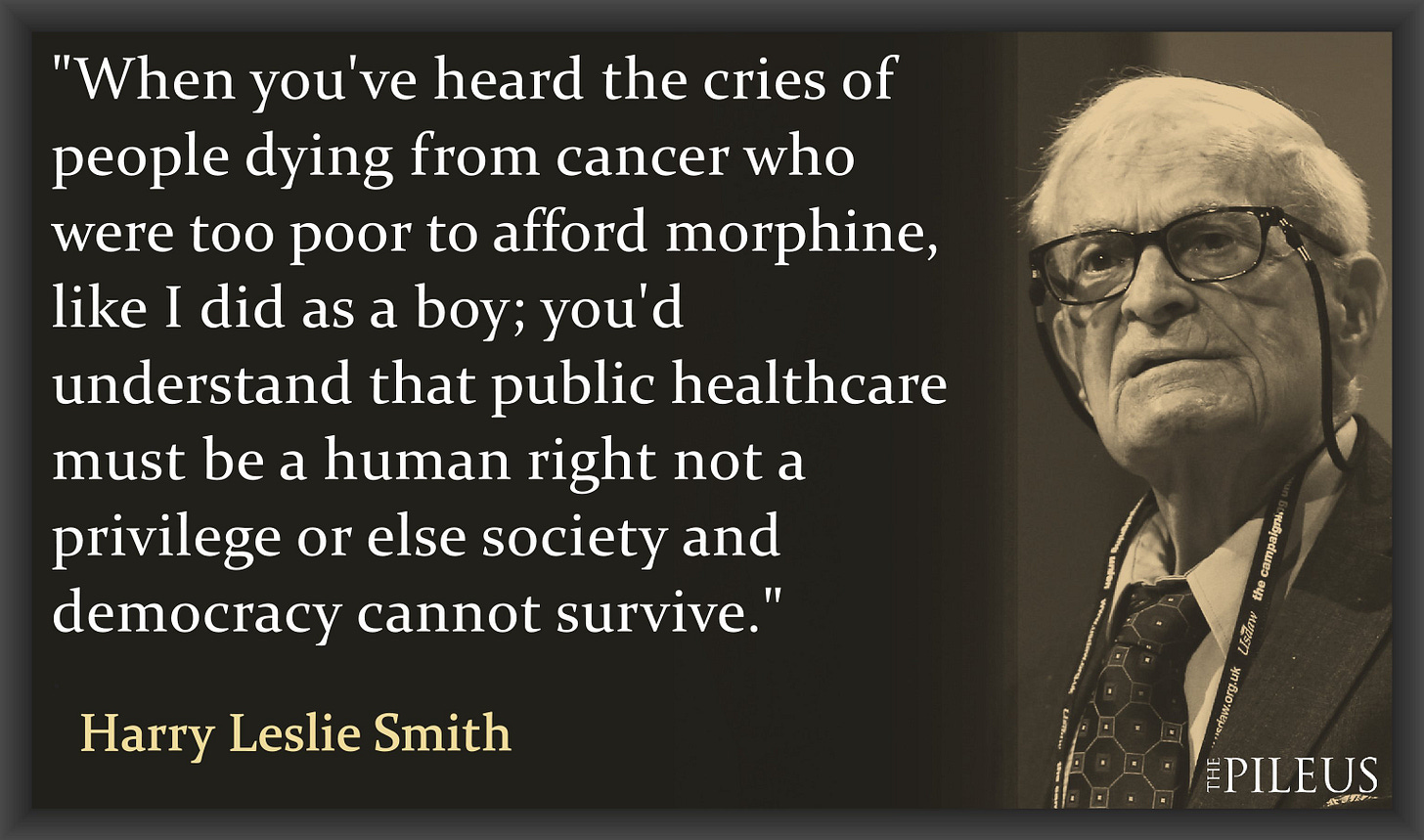November is my dad's death month. Considering it happened four years ago, the memories feel fresh but mouldering around the edges. During the first year after he died, I scrambled around to pick up the pieces of my life and continue the work I began with him when we started Harry's Last Stand in 2010, after my brother's death. But life had other plans for me because, within a year, I was battling rectal cancer while the world was attacked by its worst pandemic since 1918. These last few years weren't easy on me. But they haven't been easy on many of you as well.
In an attempt to make sense of Covid, my cancer and my family, I wrote a book that compliments the cycle of the five books that comprise Harry's Last Stand. My book is good. Perhaps one day, it will find a publisher. In the meantime, here is a small excerpt from it. To set the stage; the book was written as a letter to my dad. It tries to explain to him our life together and the, life left to me after he died.
Chapter Twenty: Living in the Limbo of Covid.
If purgatory existed, it would resemble our society during the time of Covid. Our lives were stuck in an eternal present tense of trying to exist with the plague. We craved a return to the before times, with the same intensity as people caught up in a war that had lasted too long. There were no handshakes, hugs, or kisses on the cheek for those that lived through Covid alone. I longed to be touched by another human being during those months of isolation. But the craving wasn't sexual. It was a longing to connect physically with another person and return to my old life of living in a pack of humanity.
I ached from loneliness which was as painful as my physical wounds because I was not near other people. I began to grow flowers in my apartment that first summer to at least feel something else was alive with me in the rooms I occupied.
When I slept, I dreamed of physical contact that was as mundane and banal as brushing up against another person. In my subconscious, these ordinary physical interactions between strangers or acquaintances always ended as a nightmare where I died; or the person I touched became ill. Desolate summed up my mood then. I was separated from humanity because of cancer and the pandemic, which created an "everyman for himself vibe." Despondency, dread and hopelessness were not unique feelings to me during the worst of Covid. The World Health Organisation estimated that during the first year of Covid, there was a 25% increase in people suffering from depression and anxiety. Surprisingly suicides didn’t increase, but that might have been in part because of temporary financial assistance that governments rolled out to prevent the populace from becoming so desperate that rebellion fomented. What did increase during the first Covid years were addictions; consumption of drink, narcotics or prescribed anti-depressants skyrocketed.
My drug of choice was nostalgia for our imperfect past together. I spent much of my time holding tight in my heart the memories of you, Pete, and Mum. In remembering what we did and what was done before Harry’s Last Stand, an intense light was shed on the road. I now wander alone, but once we all shared.
****************************
When you began your Harry’s Last Stand tour in September 2014 both the world and me were in a better headspace. Harry’s Last Stand was only three months on the bookshelves, but it had traction in its sales reports. Left-wing politicians discussed it, while journalists and historians claimed it was a "serious" memoir of an individual and society’s transformation from darkness to light and, then its shift towards dusk again. Some even called it a “Love Song to the NHS.”
We arrived in England on a cheap budget flight that landed in Birmingham and resumed the tour. It was a rough seven hours in the air, and you slept badly on board the aircraft. “My arse has seen better comfort on the wooden benches of a bus travelling to Southport.”
Our hotel in Birmingham was for the budget-minded business traveller located on the outskirts of town along a strip of budget hotels; that advertised cheap bookings for Christmas and New Year's Eve parties. You rested for two days, and then we left by train for your speaking gig at Festival Number 6 in Port Merion, Wales. The day you read from your book: two hundred people came to hear you speak. Before Festival Number Six, you had never spoken to this many people. But you weren’t nervous, merely perplexed that so many came to hear you. “I hope they don’t ask for their money back when I am done.”
Remember: if you can to share or subscribe to my substack. You can do it for free or become a paid subscriber. Ta-John



